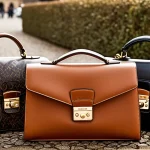Key Factors Making UK Women Influential in Beauty Trends
UK beauty trends owe much to the interplay of British culture, style, and rich historical context. British heritage integrates classic elegance with modern innovation, shaping evolving beauty standards UK women embrace. This fusion creates a unique aesthetic that resonates both locally and globally.
Social and industry shifts significantly influence women’s roles in beauty. The rise of empowerment movements and changing gender dynamics have expanded the definition of beauty, allowing UK women to explore diverse self-expression boldly. These shifts are fundamental in molding contemporary UK beauty trends that prioritize authenticity and confidence.
Also to see : Seamless Shift to Natural Deodorants: Expert Tips for a Comfortable Transition!
Diversity and inclusivity are powerful influence factors. The UK’s multicultural society enriches beauty standards UK audiences celebrate, introducing a broad spectrum of skin tones, hair types, and cultural aesthetics into mainstream trends. This inclusion drives innovation, making UK beauty not only reflective but also pioneering in embracing variety.
Cultural heritage, evolving social roles, and diverse communities converge to position UK women as dynamic leaders in the beauty space. Their ability to blend tradition with change continually shapes the landscape of beauty standards UK-wide, influencing markets and inspiring audiences beyond borders.
In the same genre : What Are the Essential Fashion Items Every Woman Should Have in Her Closet?
Notable UK Women and Their Impact on Beauty
Profiles of prominent UK women shaping current trends
Iconic UK women have been pivotal in defining UK beauty trends and elevating beauty standards UK-wide. British beauty influencers, from charismatic models to celebrated musicians and acclaimed actresses, serve as powerful trendsetters. For example, figures such as models Adwoa Aboah and Jourdan Dunn have not only influenced runway looks but also championed inclusivity within the industry.
Their impact extends beyond traditional media; these icons often use their platforms to shape conversations around beauty, self-expression, and confidence. In film, stars like Emma Watson push for ethical beauty practices, blending advocacy with style.
Specific trends popularized by British influencers include the resurgence of natural, glowing skin and the embrace of bold makeup palettes that reflect multicultural influences. These trendsetters also inspire new ways of combining heritage and modernity, which is crucial for the evolving beauty standards UK audiences admire.
Such contributions highlight how British beauty influencers actively mold the industry’s direction, making UK women not just followers but leaders in global beauty innovation. Their diverse backgrounds and approaches allow them to wield significant influence in shaping what beauty means today and tomorrow.
Notable UK Women and Their Impact on Beauty
Notable UK women have played a pivotal role in shaping UK beauty trends by pioneering styles that challenge traditional norms and inspire wide audiences. Iconic UK women such as models, musicians, and actors consistently influence beauty standards UK admirers aim to emulate. Their visibility in media creates powerful ripple effects that turn personal aesthetics into nationwide and global trends.
British beauty influencers often blend innovation with the rich cultural heritage already noted, amplifying these influence factors. For example, supermodel Naomi Campbell brought a new dimension to diversity in fashion and beauty, while singers like Adele and Dua Lipa popularize makeup and hair trends that resonate worldwide. These figures embody the evolving nature of British beauty by mixing classic elegance with contemporary boldness.
Case studies of British trendsetters show how specific looks—such as the “no-makeup” makeup trend popularized by several UK celebrities—became mainstream. Their social reach and credibility help convert edgy, innovative styles into accessible trends embraced by everyday consumers, further solidifying the UK’s leadership role in defining beauty standards UK follows.
Social Media: Amplifying UK Beauty Innovations
Social media platforms like Instagram, YouTube, and TikTok have become pivotal in accelerating UK beauty trends. British beauty influencers harness these channels to showcase creativity, authenticity, and inclusivity, rapidly elevating their profiles and expanding their reach. This digital visibility transforms niche styles into mainstream digital beauty trends almost overnight.
How does social media amplify UK influence factors? Firstly, it creates an interactive space where UK influencers engage with audiences directly, fostering communities around diverse aesthetics. Secondly, viral trends originating from the UK often spark global replication, demonstrating the UK’s central role in shaping modern beauty standards. For example, the “no-makeup makeup” look and bold, experimental lip colors gained traction worldwide after notable UK influencers championed them online.
Moreover, collaborations between UK creators and beauty brands enhance credibility and innovation. These partnerships emphasize product inclusivity and sustainability, aligning with evolving beauty standards UK-consumers seek. By merging social media clout with industry collaborations, UK influencers drive the beauty sector’s evolution, making digital platforms essential influence factors for the country’s beauty landscape.
Ultimately, social media acts as both a catalyst and amplifier, ensuring UK women’s continued leadership in beauty innovation on a global stage.
Key Factors Making UK Women Influential in Beauty Trends
UK beauty trends stem from a complex mix of British culture, style, and a deep historical backdrop. This fusion creates a distinctive foundation for beauty standards UK women actively shape. The Channel between tradition and innovation invites constant evolution in attitudes toward beauty.
Social and industry shifts also play a critical role. Changing gender roles and empowerment movements have broadened the scope of what defines beauty, encouraging UK women to embrace authenticity and diverse self-expression. These influence factors underpin the rise of more inclusive and confident beauty paradigms.
Inclusivity and multiculturalism enhance this further. The UK’s diverse communities introduce a wide spectrum of skin tones, hair textures, and cultural aesthetics into mainstream dialogues. This diversity drives creativity and disrupts narrow definitions, making beauty standards UK adopts notably progressive.
Together, the convergence of culture, social dynamics, and inclusivity empowers UK women to be leaders in defining and expanding beauty norms. Their influence ensures UK beauty standards are not only reflective of a rich heritage but also pioneers of progressive, global beauty trends. This dynamic blend remains central to understanding why UK women hold such sway in contemporary beauty conversations.
Key Factors Making UK Women Influential in Beauty Trends
British culture, social shifts, and diversity driving change
The interplay of British culture, style, and historical context remains a core influence factor shaping UK beauty trends. UK women draw from a rich heritage that balances classic refinement with cutting-edge innovation. This creates a distinctive aesthetic that evolves with changing times, reflecting both tradition and modern values.
Social and industry shifts profoundly affect beauty standards UK women embrace. As roles and expectations transform, women increasingly prioritize authenticity and self-expression. Empowerment movements challenge outdated norms and encourage embracing individuality, directly influencing trends that resonate widely.
Moreover, the UK’s diverse communities significantly contribute to the evolving beauty landscape. Inclusivity in UK beauty trends ensures a broader representation of skin tones, hair textures, and cultural styles, making the beauty landscape more dynamic. This diversity fuels creativity and helps UK women lead in setting beauty standards UK consumers value.
Together, these influence factors—cultural heritage, social evolution, and diversity—form a powerful foundation behind the influential role UK women hold in beauty innovation today.
Key Factors Making UK Women Influential in Beauty Trends
UK beauty trends emerge from a rich blend of British culture, style, and historical influences. This unique combination fosters beauty standards UK women confidently shape by integrating timeless elegance with innovative expressions. The subtle balance between honoring tradition and embracing modernity forms a core influence factor in how UK women approach beauty.
Social and industry shifts have transformed women’s roles in the beauty sphere. Changing gender dynamics and empowerment movements encourage a broader definition of beauty, emphasizing authenticity and individuality. These developments expand beauty standards UK women champion, inspiring new ways to engage with self-expression that resonate deeply within society.
Diversity and inclusivity remain pivotal influence factors. The UK’s multicultural landscape introduces varied skin tones, hair textures, and cultural aesthetics that enrich and diversify local beauty norms. This inclusiveness drives creativity and disrupts singular beauty ideals, ensuring beauty standards UK celebrates reflect a wide-ranging and progressive vision, continually shaping UK beauty trends toward greater representation and innovation.
Key Factors Making UK Women Influential in Beauty Trends
Understanding cultural, social, and diversity dynamics
What are the key cultural elements shaping UK beauty trends? The interplay of British culture, style, and historical context forms a rich backdrop influencing beauty standards UK women uphold and innovate. British heritage blends classic refinement with contemporary edge, creating a unique aesthetic that evolves with changing times.
How do social and industry shifts shape women’s roles in beauty? Transformations in gender expectations and empowerment movements have expanded possibilities for self-expression. These influence factors encourage UK women to prioritize authenticity and confidence, fostering trends that reflect individuality rather than conformity.
Why is diversity essential in UK beauty trends? The UK’s multicultural communities introduce a broad spectrum of skin tones, hair types, and aesthetic influences. This inclusivity actively shapes evolving beauty standards UK embraces, making the sector more representative and creative.
Together, these influence factors—cultural heritage, social change, and diversity—form a dynamic foundation. They empower UK women to lead the beauty landscape by blending tradition with innovation, ensuring that UK beauty trends remain relevant, inclusive, and globally influential.
Key Factors Making UK Women Influential in Beauty Trends
The interplay of British culture, style, and historical context remains a foundational influence factor in shaping UK beauty trends. British heritage blends classic elegance with modern sensibilities, allowing UK women to create beauty standards UK audiences admire that balance tradition and innovation. This synthesis supports continuous evolution rather than static ideals.
Social and industry shifts significantly affect how women engage with beauty. Changing gender roles and empowerment movements encourage broader, more authentic definitions of beauty. These developments foster self-expression and confidence, key elements driving current beauty standards UK women embody. The expanding focus on individuality challenges traditional norms and widens acceptance across different styles and presentations.
Diversity and inclusivity further amplify this impact. The UK’s multicultural society introduces varied skin tones, hair textures, and cultural aesthetics that enrich beauty norms. This wide representation acts as a powerful influence factor, stimulating creativity and disrupting narrow ideals. Inclusivity ensures UK beauty trends remain dynamic and forward-looking, emphasizing representation that resonates with diverse communities.
Together, these cultural, social, and inclusive elements underpin why UK women hold influential roles within contemporary beauty, shaping trends that reflect both heritage and modern innovation.




